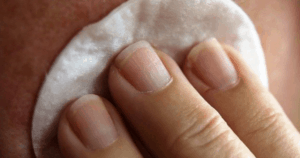
Rosacea is a skin condition many people have heard of, but many may not recognize the condition. Considering that rosacea affects around 16 million Americans, it is one of the most common skin issues. Rosacea can be very uncomfortable and embarrassing for those who are affected. To help you determine if a visit to a board-certified dermatologist is necessary, we have highlighted some of the symptoms below.
1. Redness of the Skin
One of the most easily-recognizable symptoms, skin redness (especially on the face), is a tell-tale sign of rosacea. This is usually caused by tiny blood vessels that enlarge or expand close to the surface of the skin on your nose, cheeks, forehead and chin. Flushing, or sudden reddening of the skin, is common and may be brought on by certain foods or alcohol.
However, If you have red skin, it may not always be rosacea, as a variety of skin issues can cause irritation and redness. Check with your skin care doctor if you experience persistent or sudden redness. or have any unexplainable skin issues or questions.
2. Enlarged Nose or Bumps
There are some specific findings to look for when identifying rosacea. First, you may notice various yellow or white pustules, as well as small or large red bumps, along with telangiectasia (red blood vessels) and redness. Sometimes patients will even have painful nodules or cysts present. These may be difficult to distinguish from common acne, although the lesions of rosacea are more painful, swollen, and red than a typical pimple.
If rosacea is a persistent problem, you may also notice the thickening of your skin, especially around your nose, which can make your nose appear larger or swollen. If you see any of these symptoms, make sure to see a dermatologist as soon as possible.
3. Problems With Your Eyes
You may think rosacea is strictly a skin-related disease, however, it can affect other organs such as your eyes. This is known as ocular rosacea, and usually manifests as dry, irritated eyes or swollen and red eyelids. For some, symptoms related to ocular rosacea may appear before skin symptoms.
If you think you may have rosacea, remember that it is very common and you are never alone. Speaking to your local board-certified dermatologist can help you find solutions and seek treatment personalized to your needs.
In any case, it is always important to schedule regular dermatology visits and to take care of your skin. After all, your skin is your largest, and arguably most important organ!

